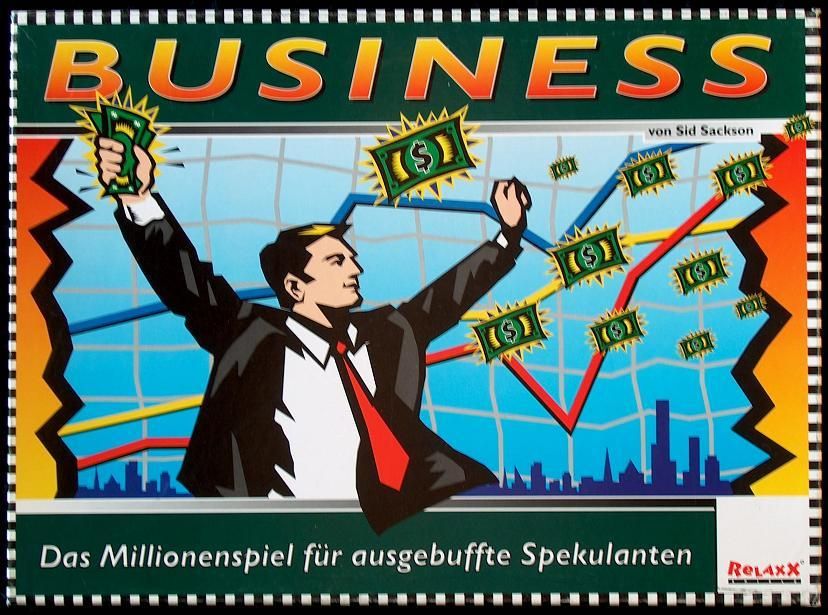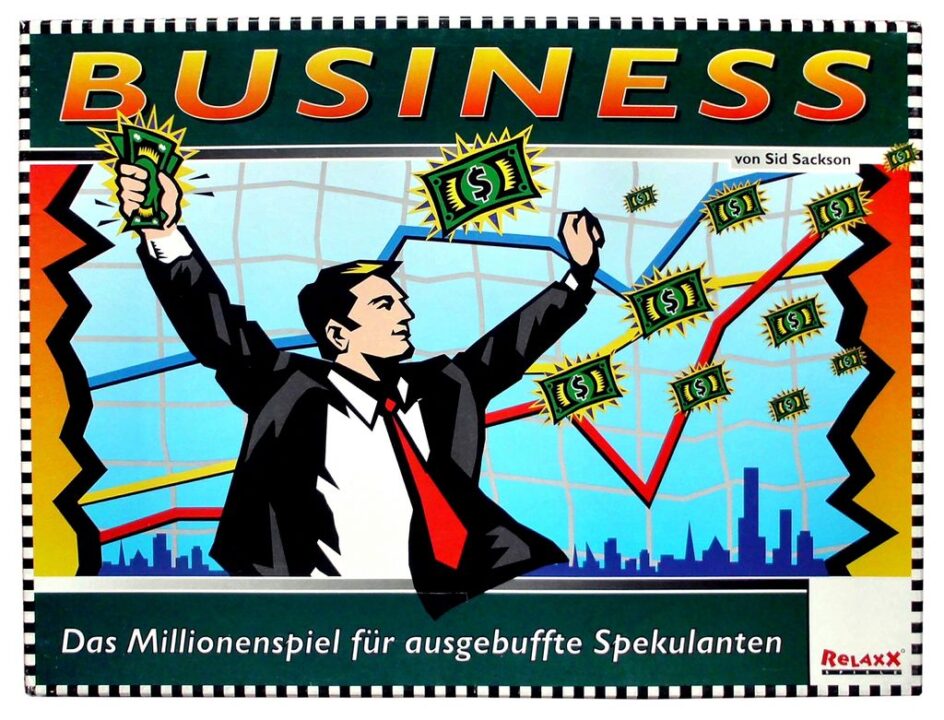It’s time to dust off that old suit and tie because today, we’re diving into the world of Business – the board game, not the corporate grind. Get ready for a ride through gameplay mechanics, component quality, strategy versus luck balance, and player interaction. As someone who’s been wheeling and dealing in this game more than I’d like to admit, here’s my honest review.
How It Plays
Setting up
First, place the game board at the center of the table. Each player picks a token and places it at the start. Shuffle the chance cards and place them face down. Give each player money based on the rules.
Gameplay
Players take turns rolling the dice and moving their tokens. If your token lands on a property, you can buy it if it’s unowned. If someone owns it, you pay them rent. Land on a chance card space, and you gotta draw a card and follow the instructions.
Winning the game
Keep playing until all but one player goes bankrupt. The last player standing wins. Pretty simple, right? But trust me, it’s more intense than it sounds!
Want to know more? Read our extensive strategy guide for Business.
Gameplay Mechanics and Rules in Business
Alright folks, let’s talk about the real nitty-gritty: the gameplay mechanics and rules of Business. First off, this game is all about making money moves. Your goal is to become the wealthiest tycoon by buying, trading, and managing properties—think of it as Monopoly’s younger, sassier cousin. But don’t let that fool you; Business has its own flair.
Each player starts with a set amount of money, which they’ll use to buy properties as they move around the board. Land on a property? You can buy it. Or, you can auction it off to other players, which adds a spicy layer of strategy!
Business also has a unique mechanism where players can negotiate and trade properties with each other. Trust me, watching your friend trade away their favorite property for some quick cash—only to regret it later—is peak entertainment. But here’s a little gripe: the rules can feel a bit loosey-goosey at times, leaving some room for player interpretation. Also, luck plays a bigger role than I’d like; a few bad dice rolls can leave you bankrupt faster than you can say ‘Donald Trump.’
Oh, and let’s not forget about Chance and Community Chest cards. They add a random element that can either make your day or ruin it. It’s like life—unpredictable, but mostly fun.
If you love wheeling and dealing, then you’ll enjoy Business. Just be prepared for some house rules to keep things fair. Tune in next time when we’ll get up close and personal with the quality of the game’s components—it’s more exciting than it sounds, I promise!
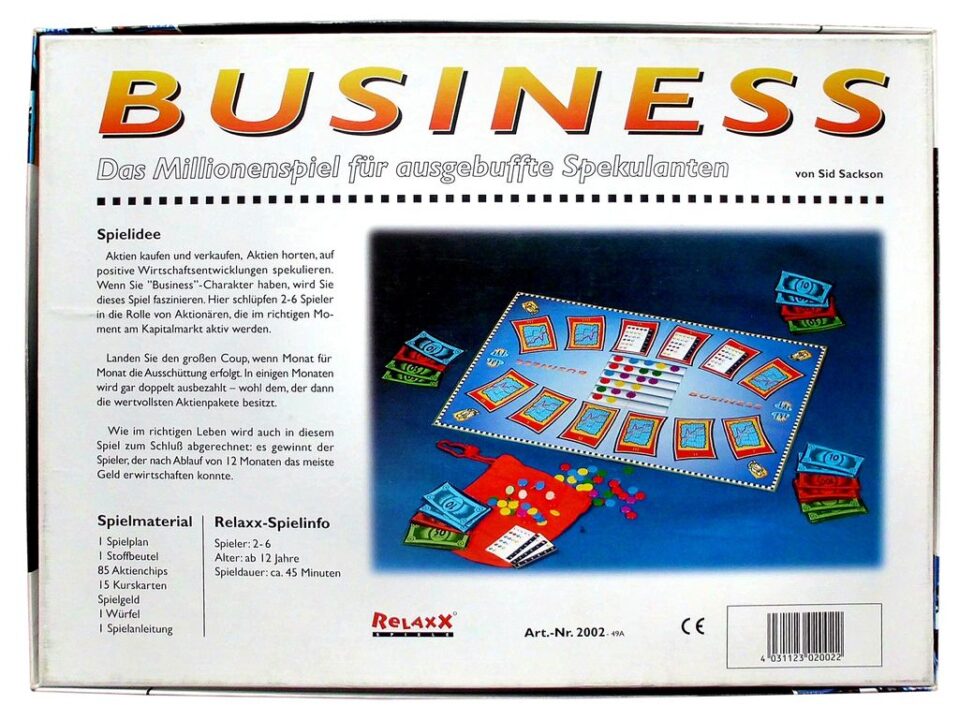
Quality of Components in Business: Worth the Investment?
Alright folks, let’s chat about the bits and pieces in the board game, Business. When I cracked open the box with my usual giddy excitement, I was half expecting the usual flimsy cards and low-grade tokens. Boy, was I wrong. The game has some pretty top-notch components. The board itself? It’s sturdy and has a nice glossy finish. It can withstand all those intense moments when you dramatically slam your token down, declaring bankruptcy or monopoly.
Now, the money in Business. We’re talking crisp little bills that don’t feel like they’re going to fall apart after a few games. Unlike other games where the cash looks like it was produced by a first-grade art class, these feel almost… respectable?
Then there are the tokens. No more squinting to figure out if you’re the iron or the top hat. They are colorful, chunky, and easy to distinguish. I even caught my friend trying to pocket one because they looked so cool. But seriously, the vibrant colors make it easy to spot your piece at a glance among the chaos of the board.
The cards too are of good quality. No peeling at the edges or bent corners after the first game. Plus, they have a nice finish, making them a joy to shuffle. And trust me, you do a lot of shuffling in this game.
Next up, we will dive into the age-old debate of strategy versus luck in Business. Hang on to your dice, it’s about to get interesting!

Strategy vs. Luck Balance in Business
Let’s talk strategy versus luck in Business. If I had a dollar for every time someone landed in jail (in the game, not real life), I’d be rich! This game offers a mix of calculated strategies and unpredictable twists, making it an intriguing experience.
From the start, you need a plan. Buy properties, trade smartly, and try to outwit your friends. But hold on, don’t get too cocky! The roll of the dice can send all your plans down the drain faster than you can say ‘bankruptcy.’ Seriously, I recall a game night where I had a near-monopoly on the yellow properties. Just when I thought I had it in the bag, Lady Luck turned her back on me. I landed on the ‘Go to Jail’ spot three times in a row. Three times!
So, here’s the lowdown. The game has its strategic elements—you need to know when to invest, when to save, and when to negotiate. But luck, or lack thereof, plays a big role too. You can’t avoid it. At times, it feels like you’re a financial genius. Other times, you’re just at the mercy of the dice.
Overall, Business offers a decent blend of strategy and luck. While the dice can disrupt the most well-laid plans, your decisions still matter. If you enjoy games where you need to think but can also roll with the punches, this one’s for you. And speaking of punches, let’s not forget how engaging player interaction can be in this game. Stay tuned, it’s a real crowd-pleaser!
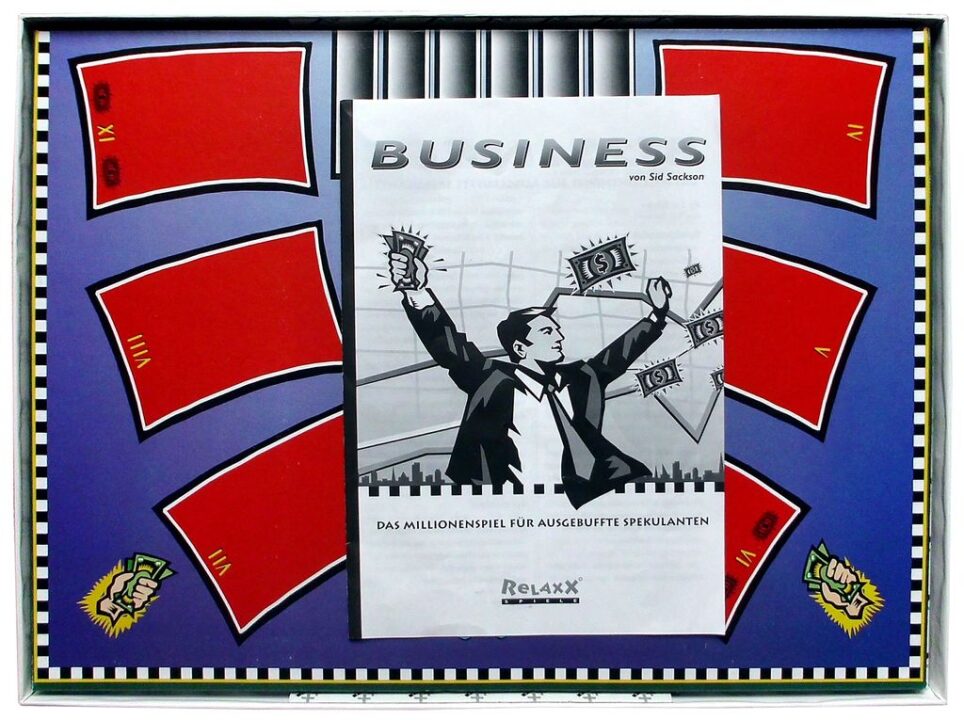
Player Interaction and Engagement in Business
One of my favorite parts of playing Business is how it brings out both the schemer and the negotiator in everyone. Picture this: my buddy Steve, usually quiet as a mouse, suddenly morphs into a cutthroat tycoon, eyeing my properties like a hawk. It’s like he’s channeled his inner wolf of Wall Street. The game certainly gets players talking and plotting.
Business isn’t just about money-making moves; it’s a social beast. You’ll find yourself striking deals, forming alliances, and, of course, backstabbing your pals. I remember one game night where we spent more time in heated debates over property trades than actually rolling the dice! The player engagement here is top-notch.
But, it’s not all sunshine and rainbows. Sometimes, the negotiation can drag on, turning a fun evening into a tedious slog. And let’s not forget those moments when one player gets knocked out early. Watching everyone else scheme and dream while you twiddle your thumbs? Not so fun.
Player elimination can be a bummer, so I’d suggest some house rules to keep everyone in the game for longer. Maybe let knocked-out players come back as “consultants” or something. Keep the fun going!
Overall, the player interaction in Business is a rollercoaster ride of emotions. If you love games where you can talk, negotiate, and, let’s be honest, argue with your friends, this one’s a winner. Just be ready for a few bumps along the way.
So, do I recommend Business? Absolutely, with a high-five and a cheeky grin. Just know what you’re getting into—friendships might get tested, but that’s half the fun!
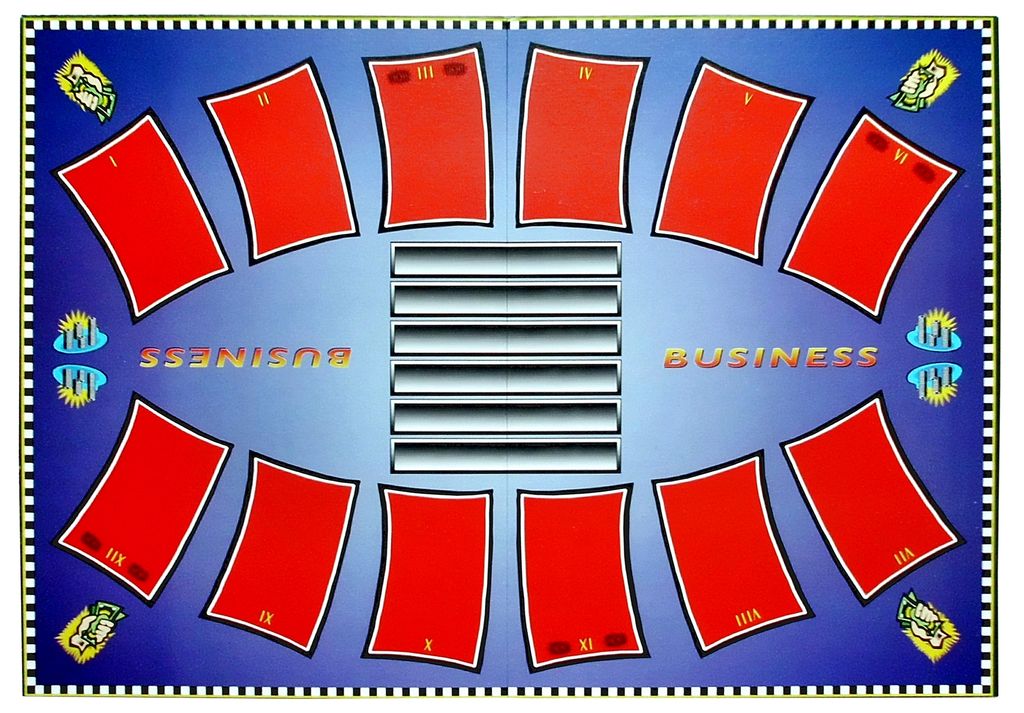
Conclusion
Wrapping up my review of Business, there’s no denying it’s a mixed bag. The robust components and engaging player interactions shine bright. However, the balance of strategy versus luck might leave some players frustrated. If you love intense boardroom battles and can handle a bit of unpredictability, Business could be a solid addition to your collection. Just remember to keep your negotiation skills sharp and your fingers crossed!

